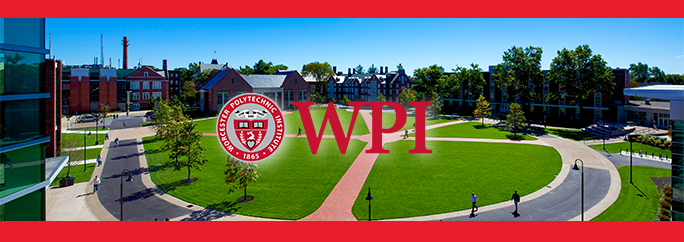The Academic Minute for 2020.01.20-2020.01.24

The Academic Minute from 01.20 – 01.24
Monday, January 20th
Art Heinricher – Worcester Polytechnic Institute
Cost of Higher Education
Arthur Heinricher is the Dean of Undergraduate Studies and a Professor of Mathematical Sciences. As dean, he is responsible for ensuring the quality and effectiveness of all aspects of the undergraduate experience at WPI, providing leadership and working with the faculty to implement new undergraduate curricular and structural changes. Together with the Dean of Students, he works to ensure an appropriate balance and synergy between academics and student life. In 2012, Heinricher led the university’s self-study working with faculty and administration to facilitate the external review for institutional accreditation by the New England Association of Schools and Colleges.
Tuesday, January 21st
Rick Vaz – Worcester Polytechnic Institute
Women in STEM Fields
As Director of WPI’s Center for Project-Based Learning, I work with colleagues across campus to help advance project-based learning at colleges and universities around the nation and the globe. We also support project-based learning here on the WPI campus. Most of my scholarly and professional activity centers around experiential and international education. Through my involvement in organizations such as the Association of American Colleges and Universities and the American Society for Engineering Education, I work to promote WPI’s approach to undergraduate education as a national model.
Wednesday, January 22nd
Geoff Pfeifer – Worcester Polytechnic Institute
Inclusion and Equity in Student Project Teams
Professor Pfeifer’s areas of expertise are in social and political theory, social and political philosophy, and social and global justice. As a part of this, he is involved in a number of projects that think through issues of social justice in the classroom and he researches, writes about, and employs critical pedagogical practices. He teaches courses in philosophy, international and global studies, and for the Great Problems Seminars program. In addition to a number of chapters in edited collections, Professor Pfeifer’s work can be found in journals such as Philosophy and Social Criticism, Globalizations, Human Studies, The European Legacy, Crisis and Critique, Continental Thought and Theory, and Current Perspectives in Social Theory. He is also the Co-editor (with West Gurley) of Phenomenology and the Political (Rowman and Littlefield, 2016) and author of The New Materialism: Althusser, Badiou, and Zizek (Routledge, 2015).
Thursday, January 23rd
Kristin Wobbe – Worcester Polytechnic Instittute
Project Based Learning in the First Year
Project-based learning is an enormously powerful approach to education. I’ve been changed by it; I’ve watched students be changed by it. I’ve seen faculty develop a renewed sense of joy in teaching from using it. And now, after over a decade of using PBL with students, I’m embarking on a new phase of helping faculty implement PBL through the work of the Center for Project-Based Learning. The good news – working with faculty on PBL is as much fun as working with students.
Friday, January 24th
Kent Rissmiller – Worcester Polytechnic Institute
Preparing Students with a Project-Based Curriculum
Kent Rissmiller completed studies in political science at Muhlenberg College (AB) and Syracuse University (PhD). Along the way, he also completed a JD at the University of New Hampshire Law School, where he worked in the Energy Law Institute. Professor Rissmiller also worked for three years as an attorney for the Public Service Commission of Nevada, where he was involved in setting rates and policies for electric and water utilities. At WPI, Professor Rissmiller teaches government, law, and public policy. He also directs the Pre-Law program and oversees the Law and Technology minor. One of his greatest joys has been seeing the success of his students who have gone on to graduate and law schools and become accomplished public policy and legal professionals. “WPI offers an excellent preparation for students interested in public service,” he says. “Our student’s scientific and technical competency is highly valued in policy and legal settings, where too many professionals lack the technical background to excel. For example, lawyers with an understanding of biology and physical chemistry can communicate with environmental experts. That’s important whether they are developing regulations or challenging the use of a potentially harmful pesticide. Currently, some of my students are trying to understand the chemistry and geology of hydrologic fracking–knowledge which is important to regulating that industry.


